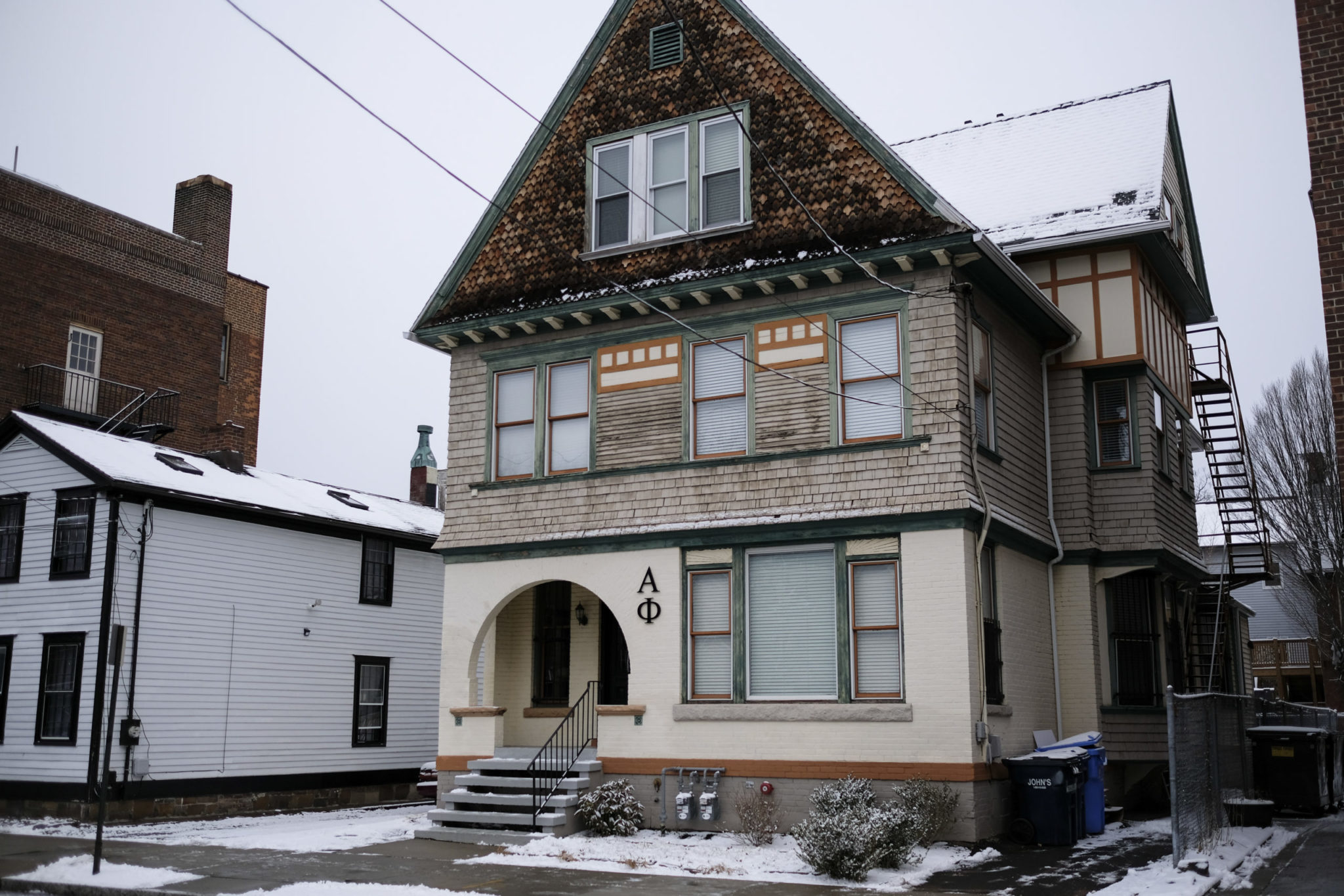Greek life bounces back with soaring interest and promise of cultural changes
The last two years have seen significant institutional changes for the University’s Greek life organizations.

Yale Daily News
It’s a Saturday midnight, and High Street is alive with partygoers — some costumed, others holding the hands of crush partners, and all celebrating the return of social gatherings after a year of remote schooling. Yet underlying this typical image of Greek life at Yale was a year of significant institutional changes for the University’s sororities, fraternities, and social clubs.
The 2021-2022 school year saw spiked interest among students in Greek life. For the University’s four Panhellenic sororities, Alpha Phi, Kappa Alpha Theta, Kappa Kappa Gamma and Pi Beta Phi, this meant a record number of potential new members, orPNMs, a pool that more than tripled that of the last recruitment cycle. Similar to last year, the Panhellenic council decided to move forward with a virtual sorority rush process to accommodate COVID-19 guidelines and recruitment accessibility, a decision that posed both advantages and challenges for rushees.
“We were able to accommodate many more conflicts because PNMs were able to just log onto their computers instead of trekking to some random campus building,” said Isabelle Hay ’24, the President of the Panhellenic Council. “It also kept PNMs from having to walk from party to party in the New Haven winter, which is always a plus!”.
While some like Grace Albright ’25 took advantage of their experience navigating two years of Zoom meetings for school, work and extracurriculars, other participants like Sofia Verich ‘25 emphasized that meeting people in-person was very different from talking to someone from behind a computer screen, with the virtual format feeling like an energy vacuum at times.
Citing this lack of intimacy with other rushees and existing sorority members, Trisha Victor ’23 — the council’s vice president — said that a few potential new members chose to drop the recruitment process, and still others planned to pursue open continuous bidding, a process by which they can join sororities later in the year.
“Even though they wanted to join a sorority, the reasoning that I heard over and over again was that they felt that virtual rush didn’t really give them enough of a choice to get to know the sororities in the way that they would have wanted,” Victor said.
The uptick in numbers was not exclusive to traditional monogender groups. Edon, a gender-inclusive social club often coined the “anti-frat” around campus, welcomed its second and third classes of all-gender members earlier this spring after branching off from the all-male SigEp in October of 2020.
Of these new pledges, 33 — over 50% — identify as non-men. This gender integration effort alone, however, isn’t a one-size fit all solution to SigEp’s longstanding history with sexual assault and male status, according to current Edon members acknowledging the need for an even more streamlined coeducation process and a greater extent of cultural support for non-male club members. While non-men are now managing the rush process, club affairs and parties alongside men, the operational side of Edon hasn’t changed much since its rebrandment from SigEp, with the club maintaining the “structure” of many of its mixers and socials, said Nathan Somerville ’22, who served as Edon’s president at the time of its switch.
In an email to the News, current president Watts Erb ’24 said that while it is impossible to completely separate Edon from its fraternity past, the club is “work[ing] diligently” to foster a culture of inclusivity amid a fluid and continuous process of incorporating feedback and suggestions from members and guests.
Discussions of sexual misconduct extend the recent pubic reclamation of Delta Kappa Epsilon. For the first time since losing its housing lease in 2018 from an onslaught of sexual assault claims, the fraternity, now under the leadership of president Ryan McCann ’24, has announced the return of socials and parties on a new Instagram account under the DKE name.
The whirlwind history of DKE’s relationship with sexual misconduct is wired and extensive: its emotionally and physically abusive pledges during “inspiration week” have drawn the attention of campus media since 2006; its misogynistic pledging requirements breached national headlines in 2010 and earned the group a five-year ban from former Dean of Yale College Mary Miller; former DKE President Luke Perischetti ’18 was suspended from the college for “penetration without consent” in 2016; and a review from the University’s Title IX department was conducted in 2018 following a wave of sexual assault allegations.
Despite promises and initiatives from DKE to effect genuine cultural change, the return of the fraternity has incited concern, doubt and outrage among students and administrators alike regarding the fraternity’s actual commitment to uplifting pillars of safety and respect.
Founded in 1836, Alpha Delta Phi was Yale’s first Greek-letter fraternity.



